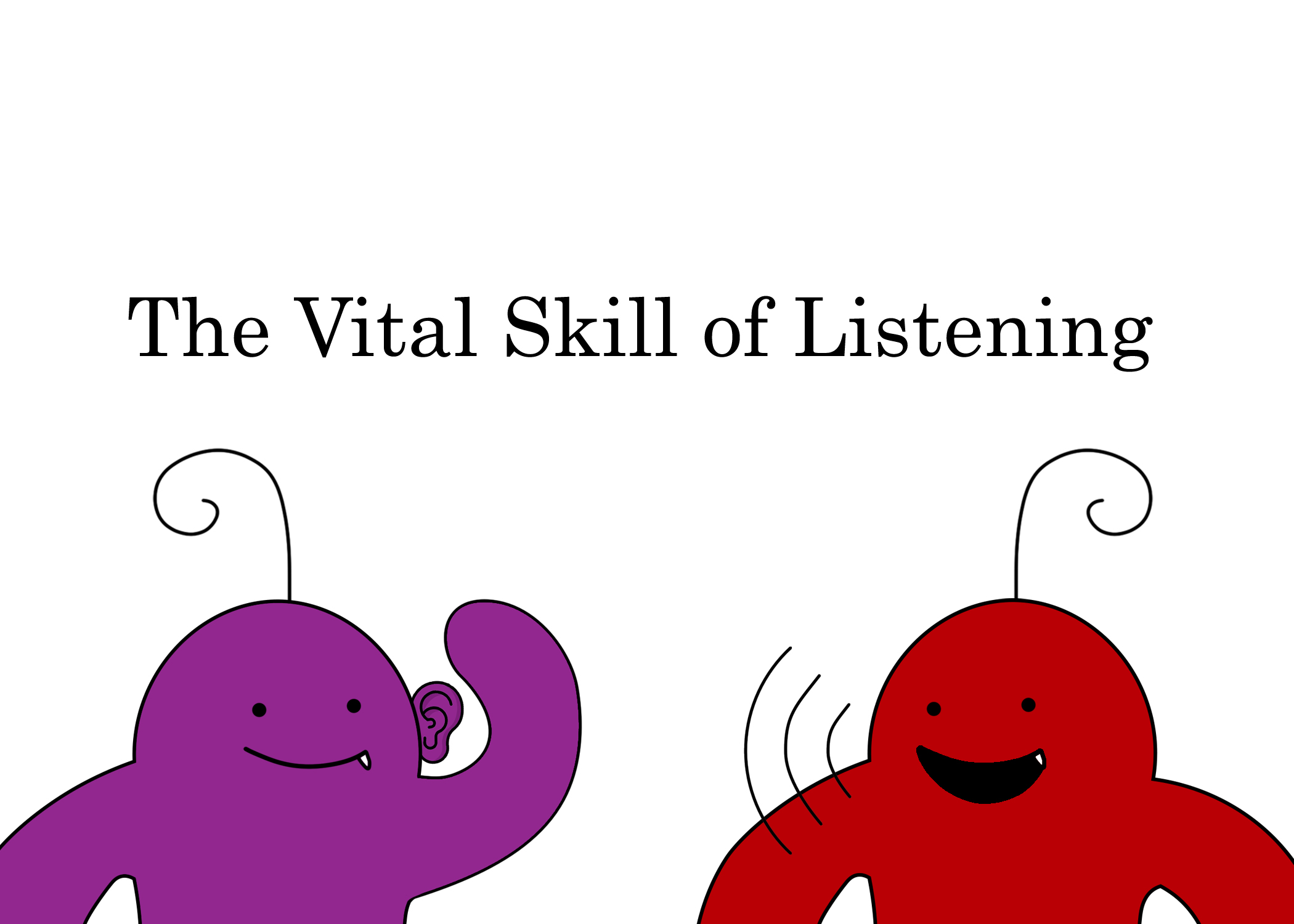As the Dalai Lama once said, “When you talk, you are only repeating what you know; but when you listen, you learn something new.”
In the field of public speaking, we tend to put much more emphasis on speaking than listening. However, if you analyze the act of public speaking, there is usually one person speaking, but several others listening. (In the case of larger events, there can be as many as thousands listening compared to still only one talking!) When you think of it that way, these events should really be called public listening events!
Listening seems quite simple on the surface, but just sitting and looking attentive is just the tip of the iceberg. There are actually two kinds of listening: active listening and passive listening. Active listening is when a listener is actively evaluating the speaker’s words and responding thoughtfully, allowing for a full immersive conversation. Passive listening, on the other hand, is when a listener is contributing anywhere from almost to absolutely nothing to the conversation, allowing the speaker to ramble on with the listener showing no sign of actual understanding or interest.
Active listening is harder to learn, but definitely worth mastering. Even in situations like Toastmasters meetings where listeners don’t have as many opportunities to engage in conversation, there are still many benefits to at least paying attention and really thinking about what you hear. Active listening isn’t really challenging when you make it a habit, and there are quite a few easy ways to start implementing it in your life. First, focus on what the speaker is saying. Really try to give him or her your undivided attention. Show that you’re listening with eye contact and verbal affirmations like “mhm”, “ok”, “and then what happened?”, or “I see.” Finally, try and give feedback or express your emotions in regard to the subject. If you find something surprising, sad, or scary, then say it! You may be surprised at what you discover when you make an effort to actively listen as part of your daily routine.




